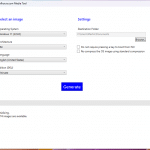GenAI and its hallucinations: A guide for developers and security teams

With the rapid proliferation of Generative AI (GenAI), developers are increasingly integrating tools like ChatGPT, Copilot, Bard, and Claude into their workflows. According to OpenAI, over 80 percent of Fortune 500 companies are already using GenAI tools to some extent, whilst a separate report shows that 83 percent of developers are using AI-tools to speed up coding.
However, this enthusiasm for GenAI needs to be balanced with a note of caution as it also brings a wave of security challenges that are easily overlooked. For many organizations, the rapid adoption of these tools has outpaced the enterprise's understanding of their inherent security vulnerabilities. This would yield a set of blocking policies for example, Italy had at one point this year completely blocked usage of GPT, which is never the answer.
This misalignment could not only compromise an organization’s data integrity but also impact its overall cyber resilience. So, how should AppSec teams, developers, and business leaders respond to the security challenges that accompany the widespread use of GenAI?
The rise of mobile app overlay attacks and how to defend against them [Q&A]

A major new threat has made its presence felt in the last few months. Cybercriminals have expanded the use of screen spoofing or overlay attacks from web applications to trusted mobile apps.
What’s more, the availability of as-a-service technology has lowered the threshold for attacks. We spoke to Dr. Klaus Schenk, SVP security and threat research at Verimatrix, to learn more about how these attacks work and what can be done to guard against them.
BitLocker could be cutting the performance of SSDs almost in half in Windows 11

A new report goes some way to showing that the BitLocker security feature of Windows 11 could be massively reducing the performance of SSDs.
An investigation found that the data encryption tool, which is enabled by default in Windows 11 Pro, can slow solid state drives by as much as 45 percent. While it would be reasonable to expect a bit of a performance drop overall as the software works away encrypting and decrypting files, few people would expect the hit to be quite so significant.
Google updates Android Auto with support for WebEx by Cisco, Zoom, Prime Video and more

Android Auto has long been about much more than getting from A to B, and there has been support for various messaging and music apps for some time. But now Google has announced a new update that not only expands entertainment options, but also allows for remote meetings while on the road.
The addition of support for WebEx by Cisco and Zoom sees Android Auto branching out into completely new territory, so you can engage in an audio-only meeting when driving. The company is also adding the Prime Video app for in-car entertainment, the Vivaldi browser app, as well as the Weather Channel app, and expanded support for digital car keys.
TUXEDO’s 3rd gen Linux-optimized Aura notebooks are powerful and affordable

As students start heading back to school, TUXEDO ushers in the third generation of their acclaimed Aura laptop line. These notebooks will provide high-quality Linux-optimized computing for the everyday user. Best of all, these computers are very affordable too.
Aura 14, the most compact of the series boasts an ultra-mobile, lightweight but durable partial aluminum frame. It's built to efficiently navigate everyday tasks, leveraging the strength of the Intel Core i5-1235U and its 2 performance and 8 efficiency cores. Users can select from a range of RAM options - 8, 16, 32, or even 64GB of speedy DDR4, complemented by an SSD that expands up to 4TB.
Mitigating the three types of non-malicious insider risk

Some people do not see the big picture, thinking there is only one type of insider risk (i.e. malicious). As a result, they often think that mitigating insider risks can be done with a one-size-fits-all approach. That is a fallacy. To counter that myth, let's shed a little light on the different types of non-malicious insider risks and what companies can do to prevent them from becoming an insider threat (i.e. malicious).
There are three different types of non-malicious insider risks, and each one requires a different approach to mitigation. According to MITRE, the three types of non-malicious insider risks are:
Baseus launches Airpow PD 20W fast charging power bank

In today's world, running out of battery is almost tantamount to a catastrophe. While the market is rife with options for power banks, every once in a while, a product comes along that disrupts the norms. Enter the Airpow PD 20W Fast Charging Power Bank by Baseus.
Whether you're using the original cable of your smartphone or the bundled cable from the Baseus Airpow Series 20W Power Bank, it promises rapid charging capabilities. Devices ranging from the iPhone 8 to the 14 series, as well as compatible Android devices with PD 20W or QC 18W, can benefit from this. The company even boldly states that it can fast charge an iPhone 14 Pro up to 50 percent in merely 30 minutes.
The future of AI lies in open source

I'm almost getting sick of hearing about AI and its ability to change the world for the better, for the worse, for who knows what? But when you get to the heart of what AI is and how it can be applied to unlock value in businesses and everyday life, you have to admit that we're standing on the edge of a revolution. This revolution is likely to change our lives significantly in the short term, and perhaps tremendously so in the medium term.
It wasn't that long ago I felt short-sold by the promise of AI. About eight years ago I saw someone demonstrating a machine's ability to recognize certain flowers. Although impressive, it was a clunky experience, and while I could imagine applications, it didn't excite me. Fast forward a few years, my real moment of surprise came when I found thispersondoesnotexist. My brain couldn't work out why these were not real people, and it stuck with me. My next big moment was podcast.ai and their first AI generated discussion between Joe Rogan and Steve Jobs. But just like everyone else on the planet, the real breakthrough was ChatGPT and the conversation I had with the 'Ghost in the Machine'.
The tablet market is in the toilet

The second quarter of 2023 has painted a grim picture for tablet shipments, revealing a significant decline. As reported by the International Data Corporation (IDC), worldwide tablet shipments declined a stark 29.9 percent year over year, amounting to just 28.3 million units in total.
The once-prosperous market seems to be gasping for air, with top vendors recording double-digit losses. Attributed to weakened consumer confidence and decreased purchasing power, these negative impacts were further compounded by high channel inventory levels. The silver lining? IDC expects this issue to gradually improve in the coming months.
TP-Link launches Matter-certified Kasa KS205 and KS225 smart light switches

Today, TP-Link launches two new products: the Kasa KS205 and KS225 smart light switches. Both devices come with the distinction of being Matter-certified, a feature that sets them apart in the rapidly growing smart home market.
The Kasa KS205 Smart Wi-Fi Light Switch and Kasa KS225 Smart Wi-Fi Light Dimmer Switch give homeowners the ability to control their lights from anywhere via the Kasa App, using a 2.4GHz Wi-Fi connection. Thanks to their advanced scheduling and timer capabilities, these switches can automate light management, switching lights on and off based on user-defined settings, even simulating occupancy when homeowners are away.
Real-time web data -- a new source of competitive intelligence [Q&A]

Gathering real-time public web data for business intelligence is a new competitive asset for some companies, but little information is available about the use cases for such data.
We spoke to Aleksandras Šulženko, product owner at Oxylabs.io, to learn more about how web data can be a valuable resource for enterprises.
TP-Link launches a trio of Matter-certified Tapo smart switches

Tapo, a TP-Link brand, launches three new Matter-certified devices today. The Tapo Mini Smart Wi-Fi Plug, Tapo Smart Wi-Fi Light Switch, and Tapo Smart Wi-Fi Dimmer Light Switch offer compatibility with all-certified smart home platforms, convenient LAN control, and multi-admin capability.
Matter brings a new level of convenience with smooth LAN control, enabling seamless communication between Matter-certified devices within a local area network, even if the home internet is offline. This direct device-to-device communication eliminates the reliance on specific forwarding devices or cloud services, ensuring a robust and reliable smart home ecosystem.
TUXEDO unveils next-gen InfinityBook Pro 14: A powerful, ultra-mobile Linux laptop

TUXEDO has announced the latest generation of its popular InfinityBook Pro 14, an ultra-mobile yet powerful business laptop featuring a 16:10 3K display, massive 99 Wh battery, and full Linux support.
The new 8th generation InfinityBook Pro 14 boasts a combination of an ultra-light and slim magnesium body, a high-end processor, and the maximum battery capacity allowed for airplane carry-on. This combination ensures maximum mobility and strong performance for business, multimedia, and even image and video editing on a premium 14-inch high-resolution display.
Best Windows apps this week

Five-hundred-and-thirty-six in a series. Welcome to this week's overview of the best apps, games and extensions released for Windows 10 and 11 on the Microsoft Store and elsewhere in the past seven days.
Windows 11 users may soon install free apps or games directly from Windows Search results. The change landed in the latest Windows 11 Canary Insider build.
Cloning voices: The opportunities, threats and needed safeguards

Microsoft recently made headlines by announcing it is working on a form of artificial intelligence (AI) called VALL-E that can clone voices from a three second audio clip. Imagine that now AI can have anyone’s voice say words without that individual actually speaking! Even more recently, Samsung announced that its software assistant, Bixby, can now clone users’ voices to answer calls. Specifically, Bixby now lets English speakers answer calls by typing a message which Bixby converts to audio and relays to the caller on their behalf.
Technologies like VALL-E and Bixby are bringing voice cloning to reality and have the potential to be industry game changers. The term voice cloning refers to the ability to use AI to build a digital copy of a person’s unique voice, including speech patterns, accents and voice inflection, by training an algorithm with a sample of a person’s speech. Once a voice model is created, plain text is all that’s needed to synthesize a person’s speech, capturing and mimicking the sound of an individual. In fact, many different types of voice cloning companies are now launching, making this technology much more accessible.
Recent Headlines
Most Commented Stories
© 1998-2024 BetaNews, Inc. All Rights Reserved. Privacy Policy - Cookie Policy.